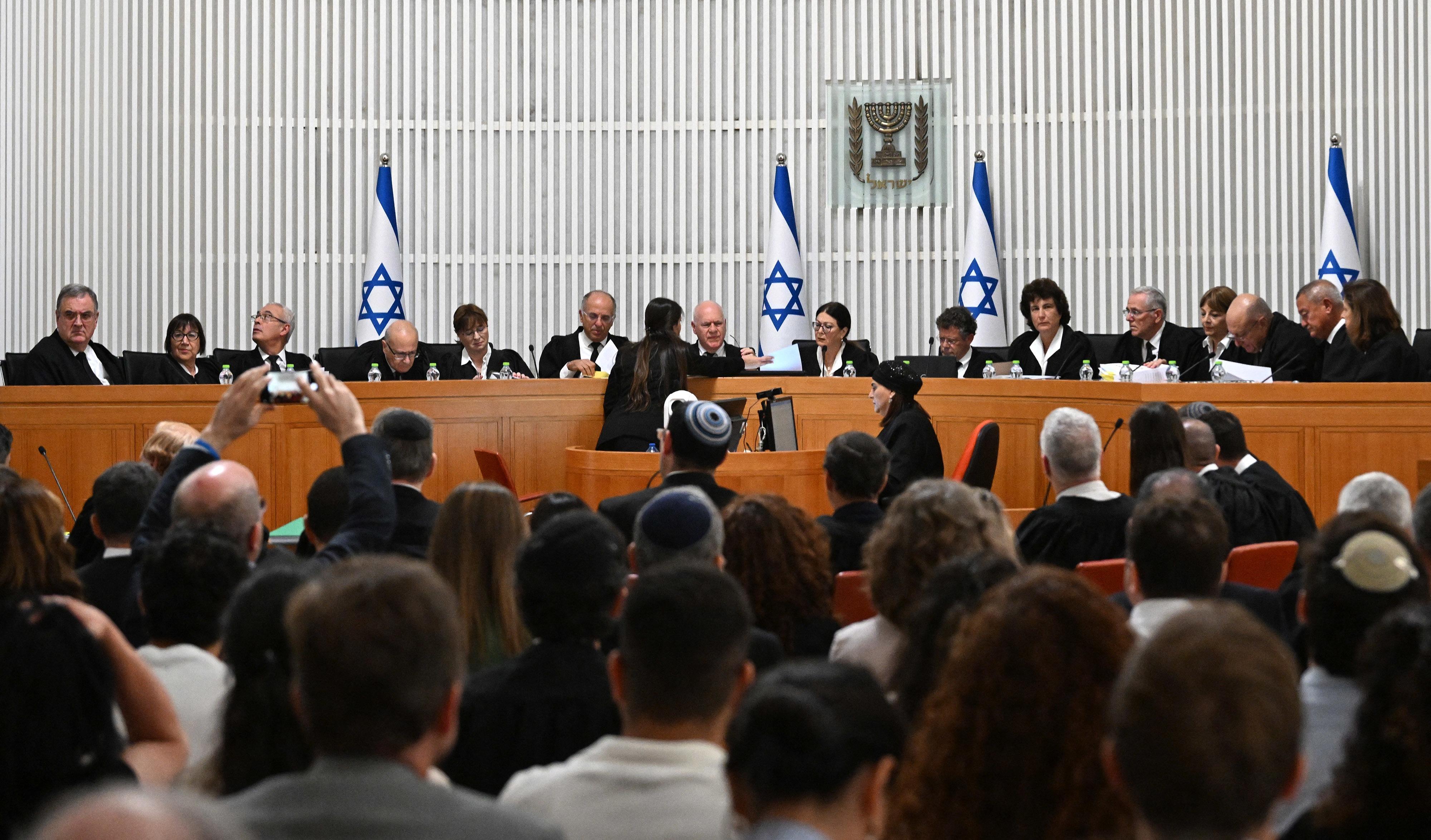 President of the Israeli Supreme Court Esther Hayut and all fifteen judges assemble to hear petitions against the 'reasonableness clause' at the court premises in Jerusalem, on September 12, 2023. (PHOTO / AFP)
President of the Israeli Supreme Court Esther Hayut and all fifteen judges assemble to hear petitions against the 'reasonableness clause' at the court premises in Jerusalem, on September 12, 2023. (PHOTO / AFP)
JERUSALEM - Israel's Supreme Court opened hearings on Tuesday against a law passed by Prime Minister Benjamin Netanyahu's government, part of the judicial overhaul that sparked nine months of nationwide demonstrations and divided the nation.
A panel comprising the entire 15 judges of the Supreme Court convened for the first time in Israel's history to hear appeals against a newly passed law that cancels some of their power. In an unprecedented situation, the judges are required to decide whether to accept the restrictions on their own powers.
ALSO READ: Protests grip Israel ahead of historic Supreme Court session
The appeals ask the court to strike down a major law passed by Netanyahu's far-right coalition in July, arguing that it is unconstitutional and would promote corruption.
We are not discussing ourselves, neither our status nor our honor. We are discussing the public's vital interests.
Esther Hayut, President of the Supreme Court
The new law cancels the court's ability to override government decisions deemed "unreasonable," a standard rarely used by Israeli judges, typically reserving it for cases they regard as severely flawed or corrupted.
The law is a key part of Netanyahu's plan to weaken the judicial system, which was first presented in January and has thrown Israeli society into turmoil, harmed the economy, and triggered mass refusals to show up for duty by military reservists.
READ MORE: Israel on edge ahead of top court session on judicial overhaul
"Can you hold a discussion of this question, without bias or predisposition, given that it is a matter of your status, your honor, and your authority?" Simcha Rothman, a lawmaker in Netanyahu's coalition and one of the main architects of the overhaul, asked the court.
 People attend a protest outside the Supreme Court in Jerusalem against the Israeli government's judicial overhaul plan on September 11, 2023. (PHOTO / AFP)
People attend a protest outside the Supreme Court in Jerusalem against the Israeli government's judicial overhaul plan on September 11, 2023. (PHOTO / AFP)
President of the Supreme Court Esther Hayut responded: "We are not discussing ourselves, neither our status nor our honor. We are discussing the public's vital interests."
READ MORE: Israel's judicial overhaul dismays environmentalists
It was not immediately clear when the ruling would be made, but according to state-owned Kan TV news, the court's decision is expected before January.
It was also not clear whether the government would abide by the ruling, as only four ministers announced that they would accept the Supreme Court's ruling even if it revokes the controversial law.


